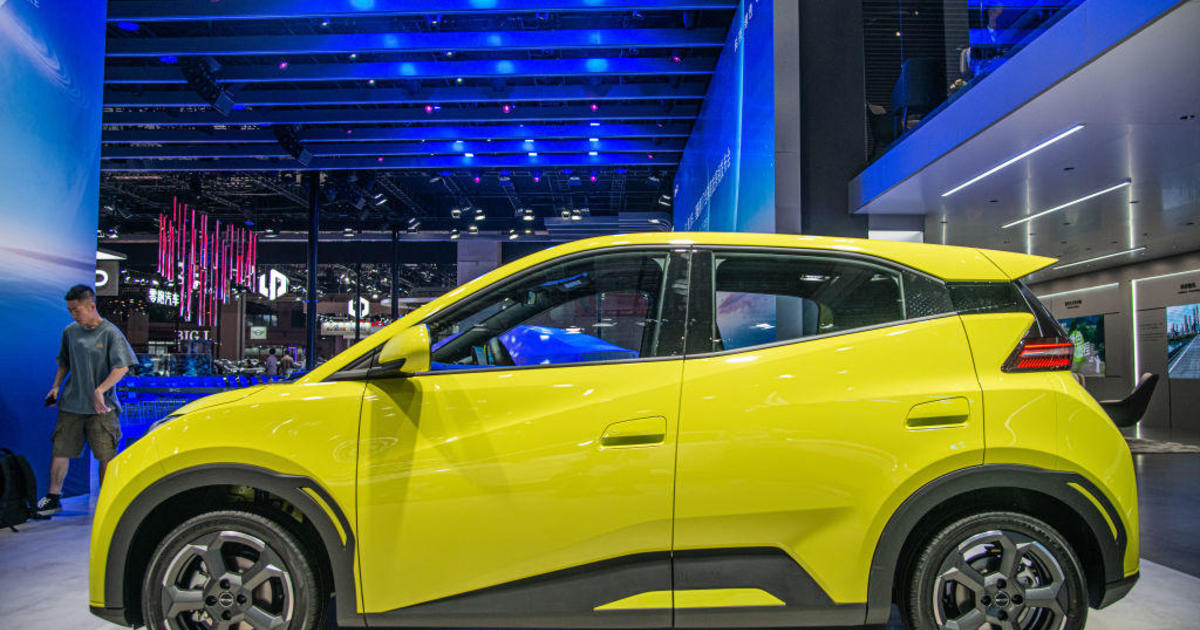President Joe Biden is set to announce new tariffs on Chinese EVs, semiconductors, batteries, solar cells, steel, and aluminum. The tariffs on EVs are expected to increase to 100%, which is four times the current tariff of 25%. This move is aimed at preventing China from undercutting U.S. companies and threatening American manufacturing jobs. While Chinese EVs do not currently make up a large part of the U.S. market, China’s exports overall have been rapidly increasing in recent years, making this tariff significant in the long run.
One of the largest EV manufacturers in the world, BYD, recently introduced a new car called the Seagull, which has been praised for its quality and performance compared to U.S.-made electric vehicles that cost significantly more. The Seagull is priced at around $12,000 in China, with a lower-range version available for under $10,000. The new tariffs on Chinese EVs could potentially alleviate some pressure on U.S. automakers and the United Auto Workers, who have expressed concerns about the impact of the transition to EVs on American workers. President Biden has reassured the union that existing workers will have priority when it comes to new job opportunities in the EV industry.
President Biden has emphasized the importance of preventing China from dominating the EV market and taking away American jobs. He has criticized the previous administration for not taking action to protect U.S. jobs and industries from Chinese competition. By imposing tariffs on Chinese exports, the Biden administration is signaling its commitment to supporting American workers and companies in the face of global competition. The president has pledged to help companies transition to new technologies while ensuring that workers are not left behind in the process.
Nancy Cordes, CBS News’ chief White House correspondent, has reported on the Biden administration’s efforts to address the challenges posed by Chinese competition in the EV market. Cordes has highlighted the importance of protecting American jobs and industries from foreign threats, particularly in the rapidly growing EV sector. President Biden’s decision to impose new tariffs on Chinese imports reflects his administration’s commitment to promoting domestic manufacturing and ensuring that U.S. workers are not displaced by foreign competition. The move is part of a broader effort to strengthen the U.S. economy and secure American jobs in key industries like EV manufacturing.









